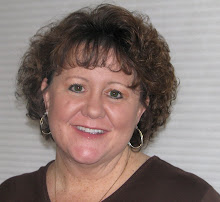Barb Hecker always knew she was loved. Adopted at birth, she was blessed with a wonderful family and a happy childhood.
“My brother and I were thrilled to know that we were twice loved,” said Hecker, of Sandpoint. “Our birth mothers loved us enough to make sure we had a good home, and our adoptive parents carried on from there.”
But when Hecker had her own children, she felt something missing.
“I got tired of going to the doctor’s office, filling out forms and always putting ‘unknown’ on health history,” said Hecker.
It prompted her to begin the search for her birth parents 12 years ago. She contacted the agency that handled her adoption and within two weeks she had the information needed to locate her birth mother.
Unfortunately, she had died. But Barb learned she had two half-brothers.
She traveled to Texas to meet them and at the advice of the agency, did so alone.
“They said I did not want to have to worry about my husband and kids because I would be busy processing my own emotions,” said Hecker. It was advice for which she is grateful.
And if her half-brothers had any doubt Hecker was their sister, it vanished the minute they saw her.
“My brothers took one look at me and they knew,” said Hecker, who is told she shares many traits with her birth mother. “They said it was like seeing a ghost.”
After returning to Sandpoint, Hecker shared her story with her friend Laurie Anderson, of Sagle.
Like Hecker, Anderson was adopted. Born in the Seattle area, she grew up in Ellensburg.
“Every time we went to Seattle, I would always look around and wonder,” Anderson said of her curiosity about her birth parents.
But she was not sure about whether she wanted to begin the search.
“I felt it may be hurtful to my parents,” Anderson said of her adoptive parents. But because she had four children of her own, she, too, wanted to know about her ethnic background as well as any potential health issues. So with Hecker’s help she began the process.
“If it weren’t for Barb, I would not have done it,” Anderson said.
Working with the Washington Adoptive Rights Movement, it took three years for Anderson to locate her birth mother.
“They said it was the least amount of information they ever had to go on,” Anderson said.
Initially, her birth mother was not sure she wanted to meet. But after Laurie's birth mother notified Laurie's birth father, the couple agreed to meet their daughter they gave up decades before.
Anderson asked Hecker to accompany her to the meeting.
“I wanted to take Barb because if it weren’t for her I would not have done this,” Anderson said. “And because she did not get the chance to meet her birth mother I wanted her to be a part of it.”
Together the friends flew to Seattle to meet Anderson’s birth parents who had flown from Oklahoma City and Colorado.
They had dinner at the Space Needle and talked at length, asking questions and fulfilling one another’s curiosity.
Anderson’s birth mother, still unsure of the meeting, looked to Hecker for advice on how to handle this newfound relationship. She said she had never had other children and did not think she could be a mom.
“I told her, ‘Laurie does not want a mother. She wants a friend,’ ” Hecker said. “She said, ‘I can do that.’ ”
She also shared with Hecker that when she found out she was pregnant, Anderson’s birth father flew back from overseas, brought her a string of pearls and proposed to her. But she declined, saying she was not ready.
Anderson’s birth mother had kept the string of pearls and brought them with her when she met Anderson.
“She asked me what I thought about her and Laurie’s birth father presenting Laurie with the pearls,” Hecker said. “I told her I was sure she would love it.”
Hecker was right. It is a gift Anderson treasures.
As both women discovered more about their biological beginnings, their closure began and their friendship grew. “There’s definitely a bond,” Anderson said.
“A deep-down bond,” Hecker said, adding that it was healing for her to share the journey with Anderson. “It is a very intimate experience.”
Both Anderson and Hecker advise that searching for one’s birth parents may not be for everyone. But if one does undertake the search, Hecker said people need to be sure they are doing it for the right reasons, such as discovering medical history, or just to know the story behind why they were given up for adoption. It can help to give closure.
“It is definitely a journey, but it is one worth taking,” Anderson said.
Hecker agrees.
“You can’t have peace until you find the pieces,” she said.
Subscribe to:
Post Comments (Atom)

No comments:
Post a Comment